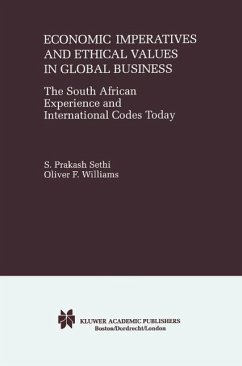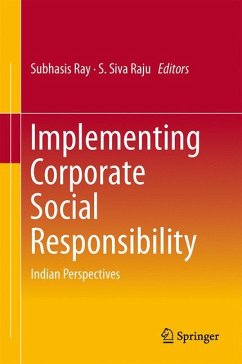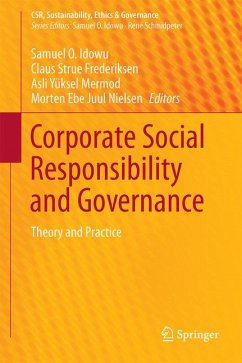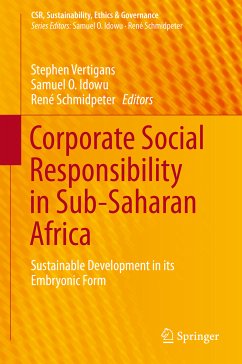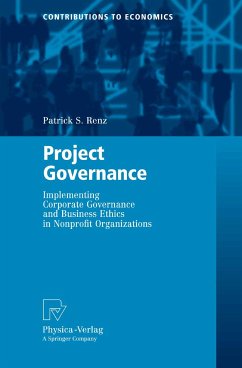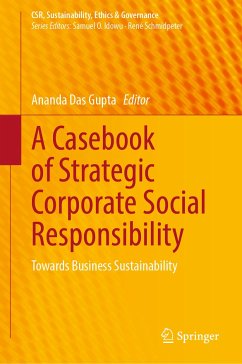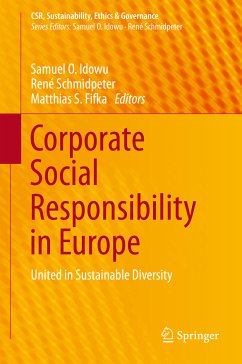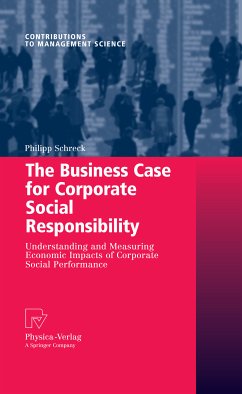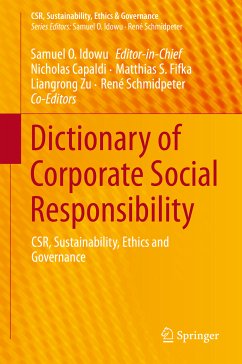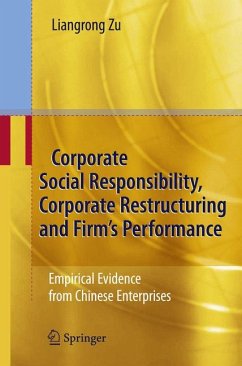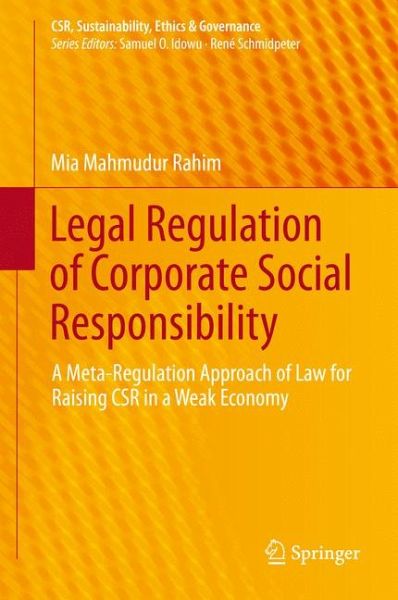
Legal Regulation of Corporate Social Responsibility (eBook, PDF)
A Meta-Regulation Approach of Law for Raising CSR in a Weak Economy
Versandkostenfrei!
Sofort per Download lieferbar
72,95 €
inkl. MwSt.
Weitere Ausgaben:

PAYBACK Punkte
36 °P sammeln!
Even though Corporate Social Responsibility (CSR) has become a widely accepted concept promoted by different stakeholders, business corporations' internal strategies, known as corporate self-regulation in most of the weak economies, respond poorly to this responsibility. Major laws relating to corporate regulation and responsibilities of these economies do not possess adequate ongoing influence to insist on corporate self-regulation to create a socially responsible corporate culture.This book describes how the laws relating to CSR could contribute to the inclusion of CSR principles at the core...
Even though Corporate Social Responsibility (CSR) has become a widely accepted concept promoted by different stakeholders, business corporations' internal strategies, known as corporate self-regulation in most of the weak economies, respond poorly to this responsibility. Major laws relating to corporate regulation and responsibilities of these economies do not possess adequate ongoing influence to insist on corporate self-regulation to create a socially responsible corporate culture.
This book describes how the laws relating to CSR could contribute to the inclusion of CSR principles at the core of the corporate self-regulation of these economies in general, without being intrusive in normal business practice. It formulates a meta-regulation approach to law, particularly by converging patterns of private ordering and state control in contemporary corporate law from the perspective of a weak economy. It proposes that this approach is suitable for alleviating regulators' limited access to information and expertise, inherent limitations of prescriptive rules, ensuring corporate commitment, and enhance the self-regulatory capacity of companies.
This book describes various meta-regulation strategies for laws to link social values to economic incentives and disincentives, and to indirectly influence companies to incorporate CSR principles at the core of their self-regulation strategies. It investigates this phenomenon using Bangladesh as a case study.
This book describes how the laws relating to CSR could contribute to the inclusion of CSR principles at the core of the corporate self-regulation of these economies in general, without being intrusive in normal business practice. It formulates a meta-regulation approach to law, particularly by converging patterns of private ordering and state control in contemporary corporate law from the perspective of a weak economy. It proposes that this approach is suitable for alleviating regulators' limited access to information and expertise, inherent limitations of prescriptive rules, ensuring corporate commitment, and enhance the self-regulatory capacity of companies.
This book describes various meta-regulation strategies for laws to link social values to economic incentives and disincentives, and to indirectly influence companies to incorporate CSR principles at the core of their self-regulation strategies. It investigates this phenomenon using Bangladesh as a case study.
Dieser Download kann aus rechtlichen Gründen nur mit Rechnungsadresse in A, B, BG, CY, CZ, D, DK, EW, E, FIN, F, GR, HR, H, IRL, I, LT, L, LR, M, NL, PL, P, R, S, SLO, SK ausgeliefert werden.




